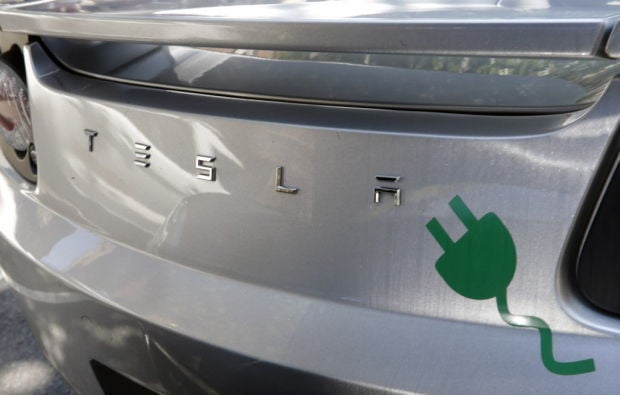Much like apartments that advertise free utilities, development officials are holding out discounted electricity in hopes of landing the highly touted Tesla Motors Inc. battery factory that has five states competing.
Nevada recently passed a state law that could discount electricity 30 percent for the project. Meanwhile, the San Antonio utility has a rarely used “economic development” rate that discounts power as much as 50 percent, which has helped that region land Toyota Motor Corp.
Arizona electric companies can discount electricity to attract new development, but the new Nevada law offers a more streamlined process, giving their governor the ability to cut deals on electricity directly with companies looking to build in the state. As competition for the Tesla plant heats up, Nevada’s new law gives that state a powerful tool in its negotiations with the electric car maker.
Palo Alto, California-based Tesla said in February it is shopping in Nevada, Arizona, New Mexico and Texas for a site to build a factory the size of about 100 Walmart stores that would employ 6,500 people.
The announcement touched off a high-stakes bidding war among Southwestern states for what could be one of the largest manufacturing projects in the nation in recent memory. Tesla later said it would take a second look at its home state of California as well.
The states all have a variety of tax benefits and other incentives, including cash grants, to land major economic developments like the battery plant. But the price of the electricity Tesla will need to power its monstrous new facility promises to be a key factor in the company’s site selection.(Tucson Electric Power worked with Tucson and Pima County on the Tucson area’s formal proposal to Tesla to build the plant here, the Arizona Daily Star has reported, but officials won’t reveal details of the local incentive package.)
Industrial power rates average within a fraction of a cent for all the states, except pricey California. But the discounts available through special utility programs vary widely.
The Nevada Legislature passed Assembly Bill 239 last year. It allows the state Office of Economic Development to grant new projects a 30-percent discount on electricity rates in their first year of operations.
Steve Hill, executive director of the Nevada Governor’s Office of Economic Development, declined to discuss Tesla specifically. States competing for the battery factory have all signed nondisclosure agreements regarding the project. Site selection experts have suggested the Reno, Nevada, area is a frontrunner for the factory, and media reports in that state have suggested the Tahoe Reno Industrial Center is preparing land for the factory.
Tesla CEO Elon Musk has said he wants the so-called “gigafactory” to be powered by wind, solar or other renewable energy. But the factory would no doubt be tied into the larger electricity grid to supply steady power around the clock and back up whatever renewable power is used.
The Nevada electricity discount falls to 20 percent for the second and third years of operation, and 10 percent in the fourth. Companies must meet certain size and power demand qualifications for the program.
Hill said the incentive could be the factor that tips the scales in favor of Nevada for certain manufacturing projects.Arizona discounts rare
Arizona Public Service Co., the biggest utility in the state, can offer economic development discounts on electricity, but hasn’t done so since the 1990s, said Jeff Guldner, APS senior vice president of customers and regulation.
While it has the ability to offer the rates, the process is not defined by law the way Nevada’s is, nor is it likely to be as generous as Nevada’s or San Antonio’s.
APS can evaluate new developments looking to build in its territory, and evaluate whether discounting the electricity to the project would benefit other customers. Having a large new customer on the system and paying bills would spread the utility’s expenses — such as power-line maintenance — over more customers, holding down rates.
But APS could not, and would not, discount electricity prices below the cost of providing the service, because that would put other customers in the position of subsidizing the development, Guldner said.
Other states that offer economic development rates also take into consideration things such as the jobs that the company will create or the supplies it will purchase from local vendors. Those economic considerations are beyond the scope of what Arizona’s utility regulators usually take into consideration.
While Arizona and Nevada have a variety of tax incentives, they pencil out fairly closely as potential factory sites before the electricity discounts are considered. For example, Nevada has no corporate income tax, but Arizona’s corporate income tax could reduce liability for a company like Tesla to close to the $50 annual minimum. But once the electricity discounts are factored in, Nevada could come out on top.





